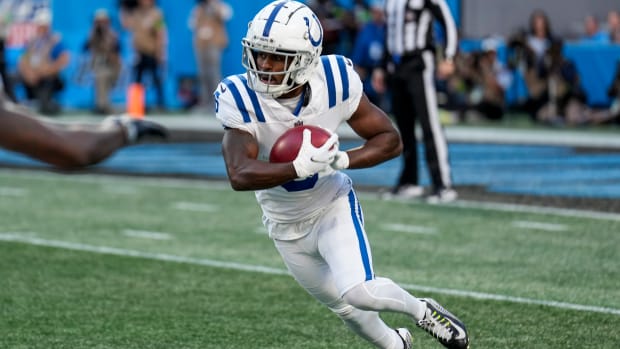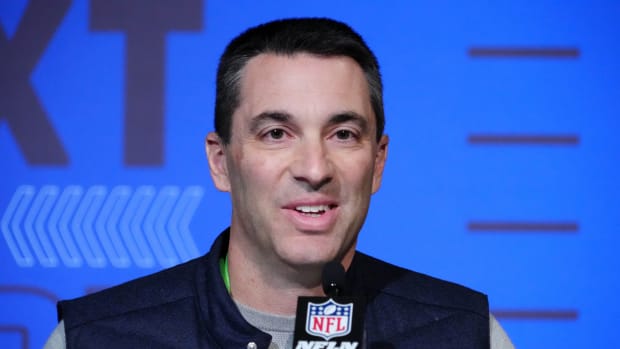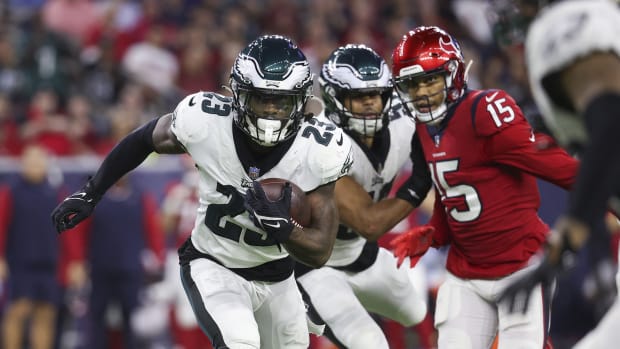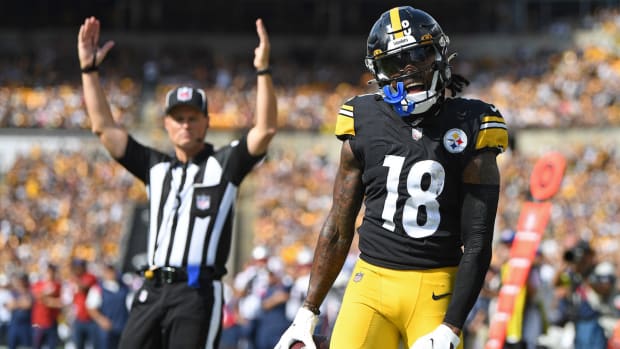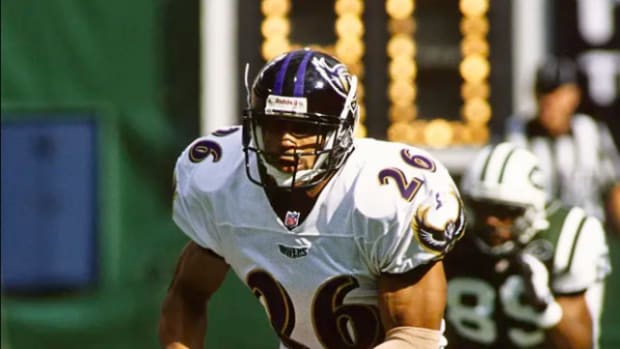Why DirecTV’s NFL Sunday Ticket Might Be Illegal Under Antitrust Law
Is DirecTV’s NFL Sunday Ticket illegal?
According to a ruling by the U.S. Court of Appeals for the Ninth Circuit on Tuesday, the famed television package that millions of fans use to watch NFL games could be in violation of the Sherman Antitrust Act.
Writing for a divided three-judge panel, Judge Sandra Segal Ikuta reversed a trial court dismissal of a case brought four years ago by a group of Sunday Ticket subscribers against the NFL and DirecTV. The subscribers, who are represented by attorneys from the law firms Susman Godfrey, Langer Grogan & Diver and Hausfeld LLP, intend for their lawsuit to become a class action. They purport to represent out-of-town fans who can only watch their favorite team play on TV every week if they purchase Sunday Ticket. Since 1994, the NFL has partnered with DirecTV to make the Sunday Ticket the exclusive provider of live telecasts of out-of-town games on Sunday afternoon. The Ticket reportedly costs $293 a season.
The alleged antitrust problem with the Sunday Ticket
Antitrust law is designed to ensure that competing businesses—such as NFL franchises—actually compete, rather than conspire. This area of law also attempts to maximize “consumer welfare,” a term that refers to the benefits obtained by consumers when they’re able to acquire goods and services.
The alleged antitrust problem with the Sunday Ticket—and, more broadly, with the NFL combining the broadcasting of games into bundled deals with NBC, CBS, Fox and ESPN—is that it precludes individual NFL teams from competing with one another in the broadcasting of games to out-of-town markets. Fans can thus be deprived of the chance to watch out-of-market games on “free” TV channels, meaning their local NBC, CBS and Fox affiliates. Also, local affiliates and regional sports networks—as well as companies that pay for commercials to air on broadcasts—are denied the chance to bid for those games.
Consider the following hypothetical. Imagine that you and your best friend are diehard Dallas Cowboys fans. You live in Chicago and your friend lives in Phoenix. If there are enough Cowboys fans in Chicago and Phoenix to make it economically worthwhile for Jerry Jones, he could create multiple telecasts of each Cowboys game and distribute them into the Chicago and Phoenix TV markets.
Jones could rely on cable, satellite and Internet channels to distribute those games. Considering how many TV channels there are now, it seems more than plausible that Jones could find stations in Chicago and Phoenix to pay for the right to broadcast Cowboys games. You and your friend could then watch every Cowboys game from the comfort of your homes and not have to buy the Sunday Ticket.
This hypothetical isn’t possible because the NFL forbids teams from competing with each over broadcasting rights. Article X of the NFL bylaws mandates that each team refrain from competing with respect to telecasts. To that end, Article X generally prohibits teams from broadcasting games into other teams’ “home territories.” The technical meaning of “home territory” under league documents refers to the city where a team plays, plus a 75-mile radius around the city. Exceptions are made for markets with multiple NFL franchises and for the Green Bay Packers, whose home territory includes all of Milwaukee County despite the fact that such a range goes beyond 75 miles outside of Green Bay. The larger point is that the NFL gives each team de facto monopoly control over broadcasting rights, thereby ensuring that teams don’t compete over live telecasts.
The plaintiffs argue that the league’s prohibition financially harms fans since it eliminates competition in the market for live telecasts. From this line of thought, Jerry Jones should compete with both Virginia Halas McCaskey’s Bears and Bill Bidwill’s Cardinals over which NFL game viewers in Chicago and Phoenix, respectively, watch. The Cowboys, Bears and Cardinals compete on the field as well as in free agency, the draft, the employment markets for coaches and trainers, and so on and so on. Why shouldn’t they also compete in terms of live game broadcasts? Why should they be able to enter into a “horizontal restraint” that arguably restricts the supply of broadcasts for fans who can’t, or won’t, pay for the Sunday Ticket?
A Back-to-the-Future worry for the league
As the NFL knows, the plaintiffs’ central argument is hardly new. The league encountered this style of complaint in the 1950s and 1960s. It was during that time when the U.S. Justice Department brought antitrust litigation against the NFL’s efforts to restrict broadcasting rights.
The Justice Department insisted that, since NFL franchises are competing businesses, they must avoid forming restraints that are unreasonably anti-competitive. A restraint that denies fans, TV stations and sponsors the chance to compete for a game broadcast undermines competition.
In 1953, the Justice Department persuaded U.S. District Judge Allan Grim to partially enjoin the NFL from restricting teams from broadcasting their games. Judge Grim concluded that teams can broadcast their games into other teams’ home territories when those other teams played on the road. He reasoned that in a competitive marketplace, fans should be able to pick which game they want to watch on TV. Likewise, local TV stations should be able to bid with each other to broadcast games.
To illustrate, assume this Sunday that the Cowboys play the Redskins and the Bears play the Seahawks in Seattle’s CenturyLink Field. Pursuant to Judge Grim’s injunction, the NFL had to let the Cowboys have an opportunity to broadcast their game against the Redskins into the Chicago market because the Bears were playing a road game that day.
Judge Grim, however, upheld the NFL’s prohibition on teams from broadcasting games into other teams’ home territories when those teams played at home. The accompanying logic was a byproduct of the era. Back then, NFL teams’ revenues derived mainly from gate receipts. It was thus understandable, Judge Grim reasoned, for the NFL to protect teams’ capacity to generate gate receipts. After all, if a team couldn’t sell tickets, it could go out of business, which would be destructive to the league as a whole. Encouraging fans to buy tickets to watch their local team play, rather than staying home to watch another team on TV was logical.
Back to the hypothetical: if the Bears were playing the Seahawks in Soldier Field, the Cowboys had to honor the NFL’s rule that they couldn’t broadcast their game against the Redskins into Chicago. This is because the Bears were playing at home.
The result of Judge Grim’s injunction was that almost every NFL franchise signed a contract with either CBS or NBC, while the Cleveland Browns launched its own network. NFL teams, in other words, competed with one another in the market for telecasting rights.
How the Rise of the American Football League changed everything
Then a rival pro football league, the American Football League, emerged in 1960. It signed a national broadcast contract with ABC whereby the network purchased the right to air all of the AFL’s games. The AFL realized that a network would pay a premium for the right to purchase all games since, by doing so, it precluded rival networks from broadcasting any games. Stated differently, the sum was greater than its parts: new value was created in the right itself to broadcast all games; such value would not exist if games were sold individually to different networks and stations.
In 1961, NFL commissioner Pete Rozelle convinced the owners to agree to pool all of their broadcasting rights so the NFL could negotiate its own network deal and then evenly distribute the revenue amongst the teams. Rozelle then negotiated a deal with CBS. The problem with this arrangement: Judge Grim’s injunction. The league petitioned Judge Grim to allow the deal, but he denied it.
Rozelle, who was politically savvy, then convinced Congress to pass, and President John F. Kennedy to sign, the Sports Broadcast Act of 1961. The SBA overruled Judge Grim’s injunction and expressed that the NFL and its teams, along with the NBA, MLB and NHL and their respective teams, enjoy a limited exemption from Section 1 of the Sherman Act. Under the exemption, Section 1 does not apply when a league negotiates a national TV contract with a network that provides “sponsored telecasting” of games.
The term “sponsored telecasting” refers to networks that provide free, over-the-air games. Those networks include NBC, ABC, CBS and Fox. Their broadcasts are “free” to viewers. The networks generate revenue by, among other ways, selling air time for commercials. In contrast, ESPN, the NFL Network and DirecTV are not protected by the SBA. Their programing is only available via paid subscriptions.
U.S. Supreme Court precedent is concerning for the NFL
Herein lies the problem for the NFL. The league’s national broadcasting deals with cable channels and satellite providers are subject to antitrust scrutiny. Such scruinty would take notice of the economic impact of bundling individual teams’ games into league-wide packages. Such bundling eliminates competition for local broadcasting rights and, arguably, undermines consumers’ ability to maximize their fandom. Further, although Judge Grim’s ruling is only binding precedent in one federal district—the Eastern District of Pennsylvania—it is persuasive authority that judges in other jurisdictions would be inclined to cite. Indeed, Judge Ikuta repeatedly cites Judge Grim in her opinion.
Further problematic for the NFL is Supreme Court precedent, which is binding. In 1984, the U.S. Supreme Court concluded that the NCAA violated antitrust law by restricting telecasts of games. In NCAA v. Board of Regents of the University of Oklahoma, the NCAA insisted that it needed to restrict the broadcasting of games in order to protect gate receipts. Writing for a majority of justices, the late Justice John Paul Stevens rejected the NCAA’s argument. He concluded that such a restraint unlawfully prevented schools from the freedom to compete in broadcasting.
The fact that gate receipts have become a less significant driver of revenue is likewise knotty for the NFL. In 1953 there was no cable TV or satellite TV and many Americans didn’t own a TV. Teams in that era needed gate receipts to survive. Judge Grim thus limited his injunction on account of protecting gate receipts. Times have obviously changed. According to Statista, the relative value of gate receipts to NFL revenue has been dropping in recent years and, as of 2017, is approximately 16% of revenue. Television revenue, in contrast, now supplies most of the league’s revenue.
NCAA v. Board of Regents is thus, to put it mildly, unhelpful precedent for the NFL. Judge Ikuta noted this in her opinion and, in doing so, drew a parallel to the NFL and it steams: “Just as the University of Oklahoma was forbidden from increasing the number of telecasts made of its games, so too are the Seattle Seahawks forbidden from selling their telecast rights independently from the NFL.”
The NFL is also disadvantaged by the U.S. Supreme Court’s 2010 decision in American Needle v. NFL. In that case Justice Stevens, writing for a unanimous court, concluded that the NFL is not a “single entity” for purposes of antitrust law. A single entity normally refers a parent and a wholly owned subsidiary, or separate departments within one company. Think of Pepsi Co. with Pepsi and Mountain Dew. Or Microsoft with its Xbox and PC departments. Or, better yet, think of the XFL, which is a football league where the league owns all of its teams (same was true of the AAF). A single entity is exempt from Section 1 of the Sherman Act and can thus coordinate on prices and engage in other conduct that would otherwise be problematic. The NFL’s argument failed because NFL franchises are individually owned. Therefore, when NFL teams collaborate, such as on apparel and marketing deals, they do so under the purview of Section 1. I discuss the American Needle case at length in an article for the Yale Law Journal.
In the Sunday Ticket case, the NFL insists that American Needle is irrelevant. The league stresses that American Needle concerned apparel related to each team, whereas a television broadcast of a game is a joint project between two teams and the league. Judge Ikuta concluded that the NFL and DirecTV “have failed to identify, and we are unaware of, any binding precedent requiring the teams and the NFL to cooperate in order to produce the telecasts.”
NFL could still prevail but has reasons to settle
As the litigation continues, the NFL can take confidence from the fact that it convinced one of three judges who heard the appeal (Judge N.R. Smith) to side with them. The league, which is represented by attorneys from the law firms Covington & Burling LLP and Wilkinson Walsh & Eskovitz LLP, can also raise a number of persuasive arguments.
One of the league’s core defenses is that its contract with DirecTV has “greatly expanded” the number of televised NFL football games to fans from across the country. While the Sunday Ticket obviously comes at a cost to subscribers, it offers a sizable amount of live content: the ability to watch all the out-of-town games broadcast on Sunday afternoon. SI’s Jacob Feldman recently wrote about the Sunday Ticket and its future with the NFL, and the NFL reasons that its deal with DirecTV has made life better, not worse, for consumers since they can essentially watch any NFL game regardless of where they live.
Think of an alternative arrangement. In a world where the league is barred from negotiating a league-wide contract, and fans could only rely on teams to broadcast games, the total number of games broadcast would presumably be smaller. Fans in out-of-town markets might be especially disadvantaged, since their favorite team may have little financial incentive to broadcast games in a far-off market. Granted, this world couldn’t exist since the NFL’s deals with NBC, CBS and Fox are protected by the Sports Broadcasting Act. Therefore, the league should be able to continue to negotiate national TV deals with free channels regardless of the outcome of the Sunday Ticket litigation. But if it lost the ability to negotiate with ESPN and DirecTV, the number of games broadcast could decline.
The league also maintains that fans aren’t harmed in any logical way by its deal with DirecTV. Just the opposite, the ability to watch any game, the league argues, “strengthens fan interest and loyalty” and leads to substantial viewership of games. From that lens, the NFL can insist that the Sunday Ticket enhances the league’s overall brand with consumers. In turn, league broadcasts become more competitive against other sports/entertainment options for consumers.
The reversal also does not mean the plaintiffs have proven their case, only that they convinced the Ninth Circuit the litigation should continue. The case had been tried before U.S. District Judge Beverly Reid O'Connell, who ruled for the NFL in July 2017. Judge O’Connell passed away in October 2017.
One worry for the NFL: The league surely hoped for a dismissal of the case so that league officials would not be subject to pretrial discovery. Instead, the notoriously private NFL will likely need to share contracts, emails and other documents with the plaintiffs. League officials might also face depositions. All of this suggests the league might be inclined to simply try to cut a deal with the plaintiffs and make the case go away.
Meanwhile, other leagues will be watching. The NBA, WNBA, NHL, MLB and MLS all have broadcasting deals with cable channels and other subscriber-based networks. Those deals could be scrutinized under antitrust law (some already have been, including MLB’s Extra Innings).
We’ll keep you posted.
Michael McCann is SI’s Legal Analyst. He is also an attorney and Director of the Sports and Entertainment Law Institute at the University of New Hampshire Franklin Pierce School of Law.
































